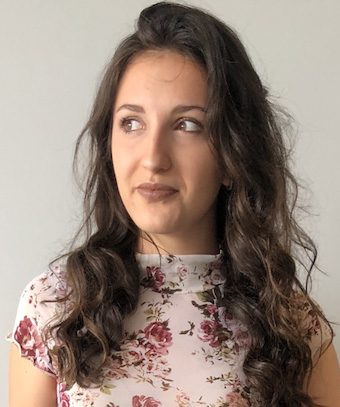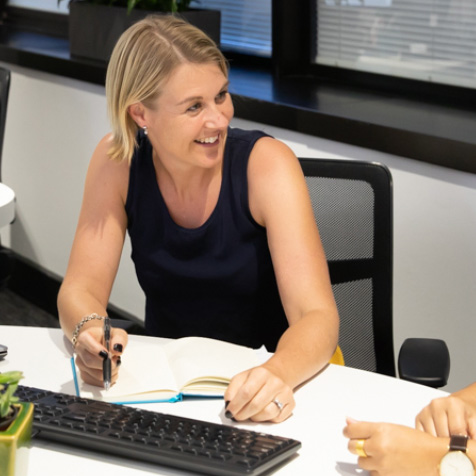- Briefly introduce myself.
- Share how we had met e.g. ‘I just saw you speak during an online webinar...’ or ‘I recently introduced myself to you at X event’.
- Express my interest in their work or what inspired me to reach out. I think the key here is to be specific, ’I watched your presentation about X and what struck me was Y.’
- Outline what I’m currently doing and how it relates to their work/project.
- Ask for the opportunity to meet up for a quick coffee at their convenience.
Does online networking work?
Featuring: Melodie Vignaud / French / Bachelor of Business
Using LinkedIn for networking or to find a job in Australia isn’t as daunting a task as it may seem to a student. It’s all about having the confidence to put yourself out there in the first place.

I’ve always been passionate about international business so it made a lot of sense for me to study abroad. Studying and living in the cultural capital of Melbourne sparked my ambition to learn more about entrepreneurship and this is how my networking journey started.
I made a private appointment with a career advisor using the free Careers Central service at KBS and found it extremely valuable. At the time I was feeling intimidated about the prospect of reaching out to experienced professionals, but their career advice really resonated with me. They taught me to go out and find people whose values aligned with mine, to look for projects and companies that I’m passionate about and that having something in common will make it a lot easier to make genuine connections.
And they were right.

Building an online network with purpose
I started to research and reached out to a number of professionals via private message on LinkedIn. Whether I had met a contact at a networking event, heard them speak during an online webinar, or simply had a real interest in their work, the formula to my messages was the same.
I made sure to keep it simple, straightforward, but always personal.
My LinkedIn message format

I think the average person would be surprised with the volume of responses I received. I arranged to go for coffee with new contacts and invested time and effort in building the relationships. To this day I’m in conversation with people who are doing work that I aspire to.
Sadly, last year I spent a significant portion of my degree off-campus due to COVID-19 lockdowns, but that didn’t stop me from making connections online via LinkedIn and email. KBS also facilitated many opportunities to interact with my classmates and to network online, so that really helped in making my overall study experience a very positive one.
When networking works...
I met both Polynize founders, where I currently work, at an event in 2019. Polynize is a start-up in Melbourne that runs hackathon-style game events. They bring together people from different experiences and backgrounds around a table to come up with innovative solutions to real-world problems.
When I was looking for a start-up in Melbourne in the innovation space, I met up with one of the founders and they explained how the project had evolved over the past two years. I made sure we stayed in touch and over time they started to ask for my input and then invited me to come on board as a community manager.
Through my networking, I’ve also secured a second freelancing role with a company, as an assistant business development manager, where I’m leveraging a lot of the knowledge that I’ve gained in my degree.
Online networking tips for beginners
My advice to students who are looking to build up their own connections are:
- Don't wait for the last year of your degree – I made that typical mistake and in hindsight, putting yourself out there to have online conversations early can expose you to various work experience opportunities as you progress through your degree
- Don’t be afraid to bother people on LinkedIn – it took me a while to work up to this, but the fact is if people don’t want to answer they won't, but it doesn’t matter. I’ve found people to be very responsive to messages and the cost for not doing it can be huge.
- Create a strong digital profile on LinkedIn – make sure you add a professional profile picture, optimise your headline to showcase your skills and demonstrate your value, and use keywords that employers are searching for in your field.
- Make it personal – going for the bulk-send approach on LinkedIn shows and it can affect your chances of getting a response.
Read more expert career advice on how to build a professional network in Australia or learn more about how our globally-recognised Careers Central team can help you!









